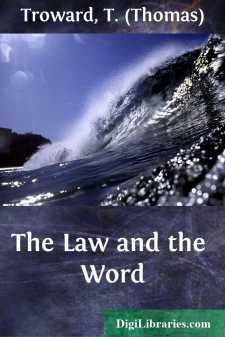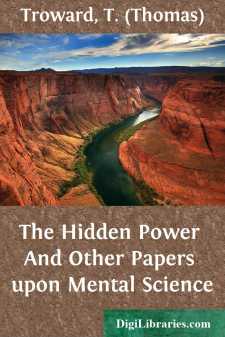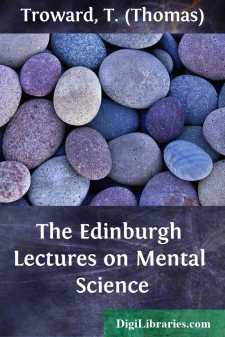Categories
- Antiques & Collectibles 13
- Architecture 36
- Art 48
- Bibles 22
- Biography & Autobiography 813
- Body, Mind & Spirit 142
- Business & Economics 28
- Children's Books 16
- Children's Fiction 13
- Computers 4
- Cooking 94
- Crafts & Hobbies 4
- Drama 346
- Education 46
- Family & Relationships 57
- Fiction 11829
- Games 19
- Gardening 17
- Health & Fitness 34
- History 1377
- House & Home 1
- Humor 147
- Juvenile Fiction 1873
- Juvenile Nonfiction 202
- Language Arts & Disciplines 88
- Law 16
- Literary Collections 686
- Literary Criticism 179
- Mathematics 13
- Medical 41
- Music 40
- Nature 179
- Non-Classifiable 1768
- Performing Arts 7
- Periodicals 1453
- Philosophy 64
- Photography 2
- Poetry 896
- Political Science 203
- Psychology 42
- Reference 154
- Religion 513
- Science 126
- Self-Help 84
- Social Science 81
- Sports & Recreation 34
- Study Aids 3
- Technology & Engineering 59
- Transportation 23
- Travel 463
- True Crime 29
T. (Thomas) Troward
Thomas Troward (1847-1916) was an English judge, author, and influential figure in the New Thought movement. He is best known for his metaphysical writings, particularly on the relationship between the mind and divine principles. His works, such as "The Edinburgh Lectures on Mental Science" and "The Creative Process in the Individual," explore the power of thought and mental causation. Troward's ideas laid the groundwork for modern self-help and spiritual movements, blending Eastern and Western philosophies with an emphasis on mental science.
Author's Books:
Sort by:
CHAPTER I If I were asked what, in my opinion, distinguishes the thought of the present day from that of a previous generation, I should feel inclined to say, it is the fact that people are beginning to realize that Thought is a power in itself, one of the great forces of the Universe, and ultimately the greatest of forces, directing all the others. This idea seems to be, as the French say, "in the...
more...
The Hidden Power To realise fully how much of our present daily life consists in symbols is to find the answer to the old, old question, What is Truth? and in the degree in which we begin to recognise this we begin to approach Truth. The realisation of Truth consists in the ability to translate symbols, whether natural or conventional, into their equivalents; and the root of all the errors of mankind...
more...
I. SPIRIT AND MATTER. In commencing a course of lectures on Mental Science, it is somewhat difficult for the lecturer to fix upon the best method of opening the subject. It can be approached from many sides, each with some peculiar advantage of its own; but, after careful deliberation, it appears to me that, for the purpose of the present course, no better starting-point could be selected than the...
more...




